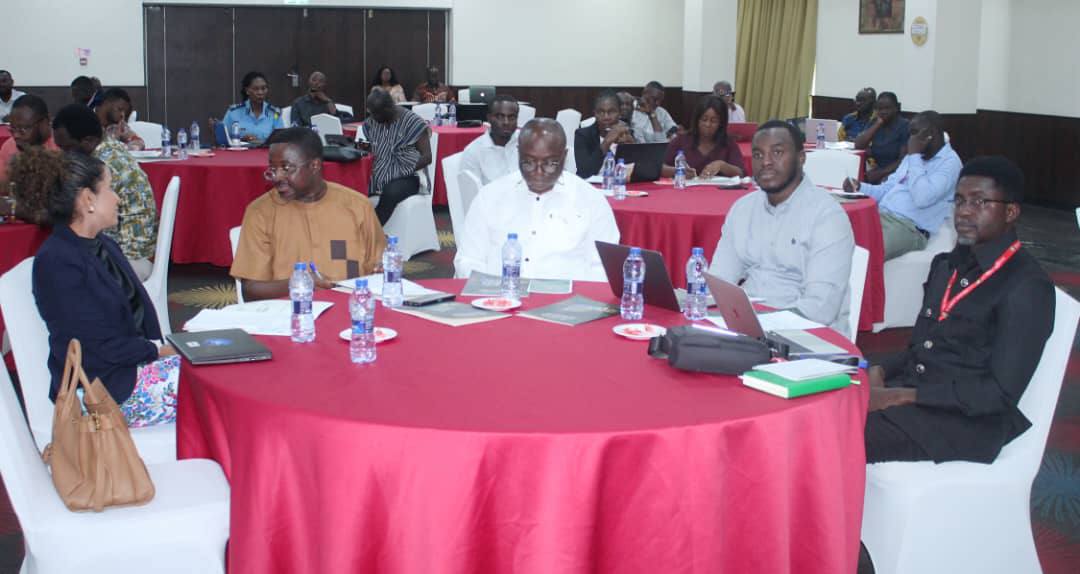ECOWAS Agriculture Trade And Market (EATM) Scorecard
Intra-regional trade in agricultural and food products has proven to be of great importance in strengthening the resilience of food systems. There are multiple challenges hampering intra-regional agricultural and food trade in West Africa thereby contributing to the low officially recorded trade flows compared to other regions in Africa. Several policies have subsequently been designed to enhance trade flows within the region, that include among others, the Economic Community of West Africa States (ECOWAS) Trade Liberalization Scheme (ETLS) and the ECOWAS Common Agricultural Policy (ECOWAP). Whilst the adoption of these policies and frameworks may be lauded, the visible and substantive evidence suggests that ECOWAS Member States are struggling with the implementation of these normative policies.
Against this background and in close collaboration with relevant national and regional stakeholders and partners, ECOWAS is establishing a performance measurement and tracking mechanism, namely the ECOWAS Agriculture Trade and Market (EATM) Scorecard with the objective to identify and close gaps in the national implementation of regional agricultural and food trade policies. This Scorecard contributes to the implementation of the Food System Resilience Program (FSRP). The latter is a regional flagship investment program facilitated by the World Bank with the goal at increasing preparedness against food insecurity and improve the resilience of the West African food system. To achieve this goal, the EATM Scorecard promotes intra-regional trade in agriculture and food products in the region by i) spotlighting strengths and weaknesses of countries in the context of agri-food trade, ii) improving the reporting on agri-food trade data, and iii) raising awareness of policy implementation status and strengthen the implementation of existing policy frameworks at the national level.
The Scorecard methodology seeks to establish an innovative and easy to access agriculture trade monitoring tool which is linked to existing policy frameworks and initiative, including ETLS, ECOWAP and the African Continental Free Trade Area (AfCFTA). For this to be successful, the EATM Scorecard relies on an inclusive engagement process with a wide range of actors in the region, including the regional economic communities (ECOWAS, the West African Economic and Monetary Union, or WAEMU, and the Permanent Interstate Committee for Drought Control in the Sahel, or CILSS), national governments, and nonstate actors (farmer organizations, private sector and trade associations, civil society organizations, and development partners).
A key challenge for operationalizing the EATM Scorecard is ensuring access to adequate data to monitor progress towards expected outcomes. Tracking the performance of agricultural trade in West Africa poses several challenges due to inadequate technical and institutional capacities for data collection, monitoring and reporting. The high-level of informal trade in the region further reduces data quality. Therefore, effective measurement and tracking of regional trade of agricultural and food products needs to be supported by robust data and statistics, and strong analytical capacities.
For news and social media posts on this intervention, visit:
1. ECOWAS [FSRP] 'Investigates' Member-States' Performance In Cross- Border Trade: https://fsrp.org.gh/blog/ECOWAS-%5BFSRP%5D-%27Investigates%27-Member-States%27-Performance-In-Cross--Border-Trade
2. STATE REGULATORY BODIES ANALYSE GHANA’S DATA-GATHERING PROCEDURES FOR EATM-S: https://fsrp.org.gh/blog/STATE-REGULATORY-BODIES-ANALYSE-GHANA’S-DATA-GATHERING-PROCEDURES-FOR-EATM-S#


Leave a comment
Comments (0)
No comments yet. Be the first to comment!